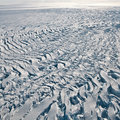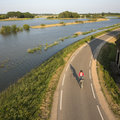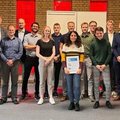Climate Action
There is no doubt that the anthropogenic emissions of greenhouse gases are changing our living environment. Climate change is in our hands. We need to both work on limiting it as much as we can (mitigation), but we will also have to learn to adapt to new circumstances. TU Delft will harness its innovative powers to support the world-wide transition to non-fossil resources, and adaptation of the living environment to the consequences of global warming.
The problem is complex and urgent – but we have no other choice than to be optimistic and use all of our capacity to face the challenge, through our education programs and our research.
For more information, see:
In the Climate Action research programme, we start from four themes we consider to be paramount for future Climate Action:
The TU Delft vision on Climate Action is deeply founded in preceding decades of university wide climate action research. The goal of the Climate action research programme is to build on current strengths and identify the areas where there is a need to strengthen our capacities to keep up our (inter)national reputation as climate action university.
Events
• Join our monthly free lunch lectures
• Apply for our Seed Fund
• Win the award for best climate paper
• Receive our newsletter
• Stay up to date on vacancies
Delft Energy Initiative
We work together with the TU Delft Energy Initiative and it's energy institutes: Urban Energy; PowerWeb; Wind Energy; e-Refinery; H2; e4Battery; Social Innovation; Ocean Energy, Energy Access 4 All.
























